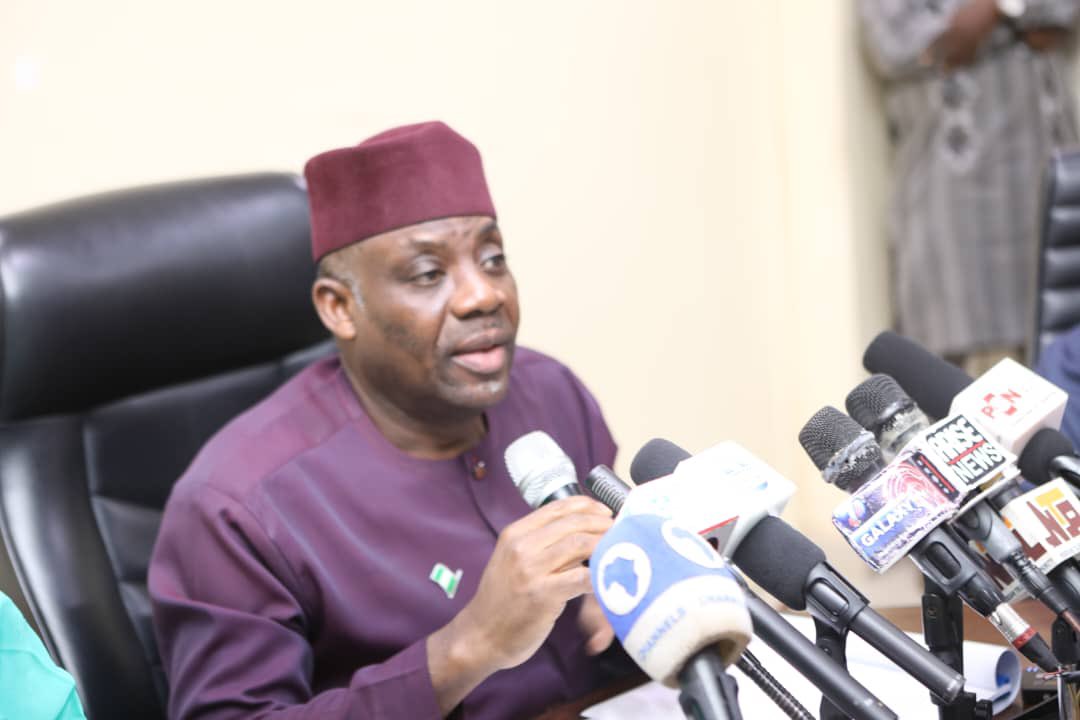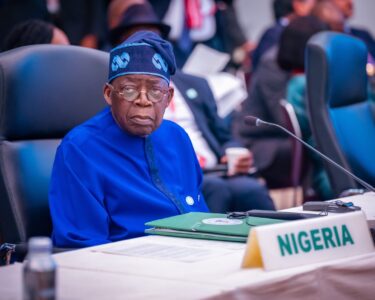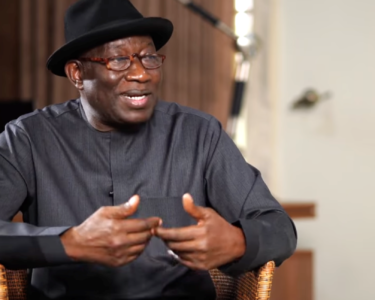Textbooks claim Igbo founded Ile-Ife
Federal Ministry of Education disowns books
Summary
- Ministry says controversial books were neither approved nor commissioned
- Yoruba group’s petition prompts federal probe into alleged historical distortion
- Scholars and traditional rulers refute Igbo origin claim as lacking historical basis
Abuja, Nigeria — The Nigerian Federal Ministry of Education has officially disowned two controversial history textbooks that assert the Igbo people founded Ile-Ife, a city deeply revered as the ancestral and spiritual home of the Yoruba people.
In a statement released on June 11, 2025, by ministry spokesperson Folasade Boriowo, the government clarified that the textbooks—Standard History Studies for JSS 1–3 by Tony and Ijeoma Duru, and The Igbo: People, History and Worldview by Dons Eze and Chinedu Ochinanwata—were neither commissioned nor approved by the ministry.
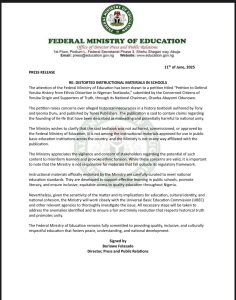 A copy of the statement from the Federal Ministry of Education
A copy of the statement from the Federal Ministry of Education
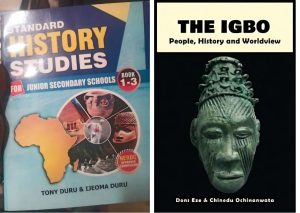 A collage of the front covers of the controversial texts (Source: The Yoruba Times)
A collage of the front covers of the controversial texts (Source: The Yoruba Times)
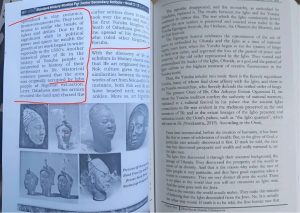 A collage of pages from the two controversial texts (Source: The Yoruba Times)
A collage of pages from the two controversial texts (Source: The Yoruba Times)
Boriowo stressed that the books are not part of instructional materials sanctioned for use in public basic education institutions.
The government’s response followed a petition titled “Petition to Defend Yoruba History from Ethnic Distortion in Nigerian Textbooks” submitted by the Concerned Citizens of Yoruba Origin and Supporters of Truth, a group led by Otunba Abayomi Odunowo.
The petition called attention to what it described as a “misleading and inflammatory” revision of Yoruba history that could exacerbate ethnic tensions in the country.
According to the petitioners, the contested books claim that the Igbo people originally settled Ile-Ife before being displaced by Oduduwa, a central figure in Yoruba mythology and oral tradition. This narrative contradicts well-established Yoruba accounts, which hold that Ile-Ife was founded by divine beings such as Obatala and later Oduduwa, who is said to have established the dynasty that forms the cornerstone of Yoruba identity.
Historians and cultural authorities have largely dismissed the books’ claims as historically inaccurate. Archaeological evidence places the emergence of Ile-Ife as a major cultural and political centre as early as the 8th century, with the city renowned for its bronze, terracotta, and stone sculptures, artefacts closely tied to Yoruba civilisation.
While some figures, such as the Ooni of Ife in a 2019 speech, have acknowledged historical connections and cultural exchanges between the Yoruba and Igbo, citing, for example, the presence of an Igbo House within the Ile-Ife palace, this has not been interpreted as evidence of Igbo origins for the city. In contrast, the Olugbo of Ugbo has publicly rejected suggestions of ancestral ties between the two groups.
The Ministry of Education announced it would work with the Universal Basic Education Commission (UBEC) and other relevant agencies to investigate the controversial claims and ensure that all instructional content used in Nigerian schools reflects factual historical research and fosters national cohesion.
The incident has sparked debate on social media platforms such as X, where many Yoruba commentators voiced concern about the potential distortion of their cultural legacy. Others have interpreted the controversy as symptomatic of deeper ethnic divisions in Nigeria, particularly between Yoruba and Igbo communities, whose relations have been shaped by historical episodes including the Nigerian Civil War and long-standing political rivalries.
As the federal probe unfolds, the issue highlights the delicate nature of ethnic narratives in Nigeria’s educational system and the broader challenge of balancing historical accuracy with the need for unity in a diverse nation.


